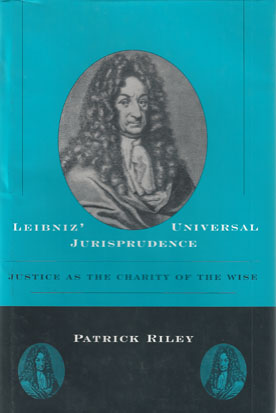We will be closed from 5pm Thursday 17th April for the Easter Bank Holidays, re-opening at 8.30am on Tuesday 22nd April. Any orders placed during this period will be processed when we re-open.

Although Leibniz is universally regarded as the greatest German philosopher before Kant, his work as a political and moral philosopher is almost entirely neglected in the English-speaking world, where he is seen chiefly as a metaphysician, mathematical logician, and co-discoverer of calculus.
Yet Liebniz' doctoral degree was in law and jurisprudence, and he served throughout his life as a judge and a diplomat; he was a valued political-legal adviser to Czar Peter the Great, to the King of Prussia in Berlin, and to the Holy Roman Emperor in Vienna. Patrick Riley recovers this crucial part of Liebniz' thought and activity.
As we celebate the 350th anniversary of Leibniz' birth in 1996 - his political, moral and legal thought are discussed here in English. The text includes fragments of his work that have never before been translated. Riley shows that ""justice as wise charity"" has at least as much claim to be taken seriously as the familiar contractarian ideas of Hobbes and Locke.
Since Leibniz was the greatest Platonist of early modernity, Riley argues, his version of Platonic idealism serves as the bridge from Plato himself to the greatest modern ""critical"" idealist, Kant. With ""Leibniz' Universal Jurisprudence"" we now have a fuller picture of one of the greatest general thinkers of the 17th century.